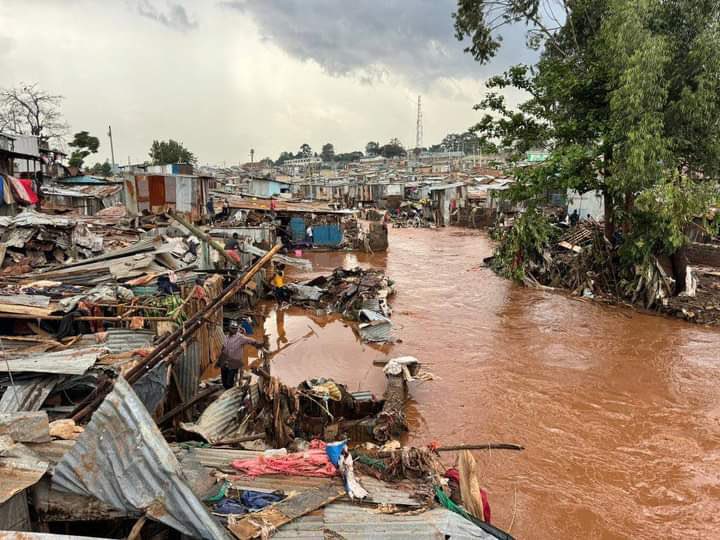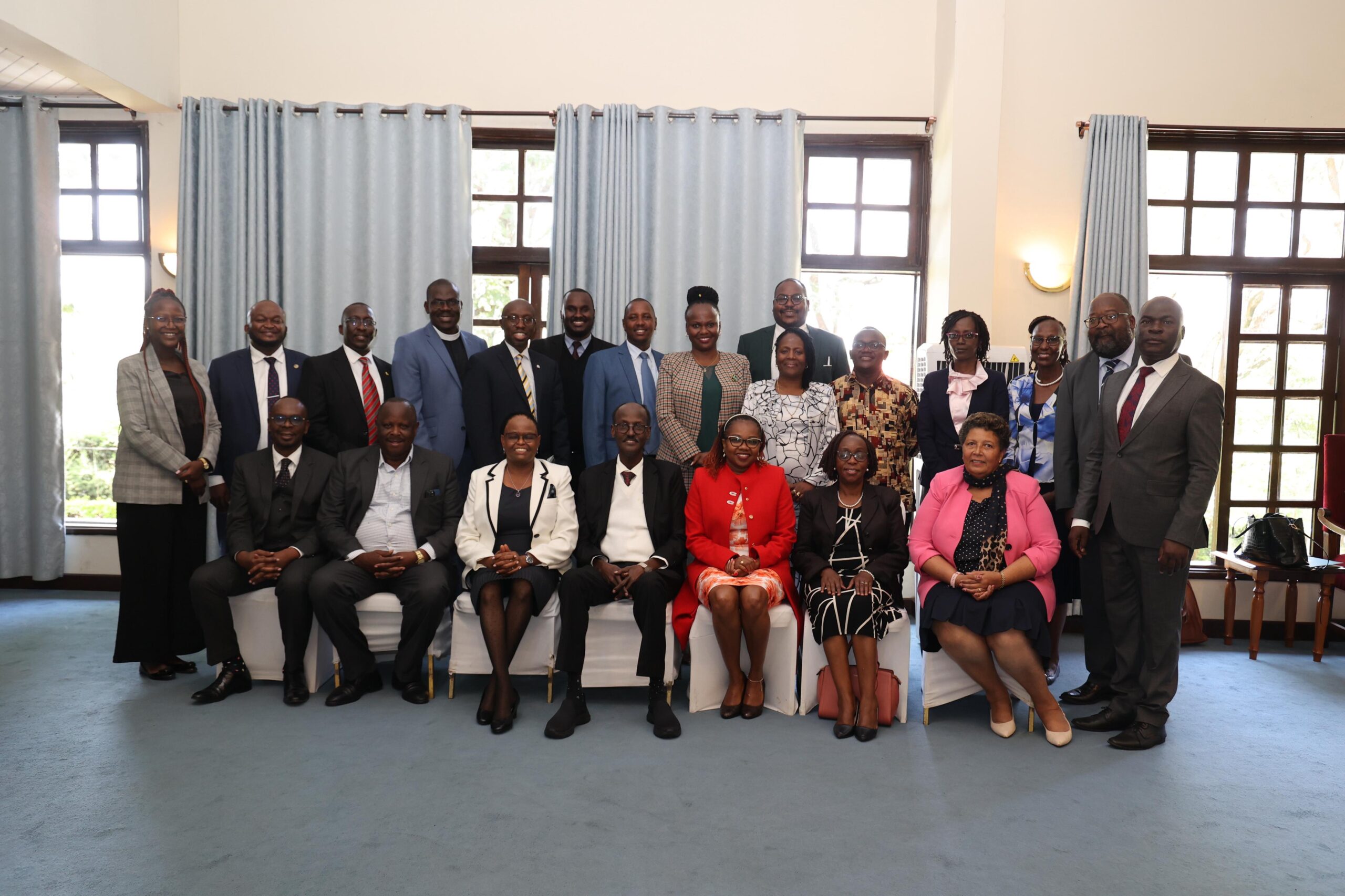NAIROBI,Kenya – In the past weeks, the floods have mercilessly worked to expose the rot within the Kenyan government. Dear reader you may have seen, heard, and read so many heart-wrenching tales of the deluge and by the time you finish reading this article, I hope to have expounded on some of them.
The rot begins with the poor infrastructure which exacerbated the impacts of floods within the urban areas. The current infrastructure system has failed to keep up with rapid urbanisation.
Rural-urban migration has led to the mushrooming of informal settlements with poor infrastructure and drainage systems. As more concrete covers the earth there are fewer places to absorb the water, and it runs off overwhelming the drains and rivers.
The development of settlements on riparian land further compounds the issue. Much has been talked about this. However, let’s shed light on the callous manner in which the government has dealt with informal dwellers amidst the floods.
We have seen the discrimination, unfair treatment, and disproportionate effects felt only by those in informal settlements as opposed to the elite. An example is the forceful evictions of residents in Mathare by the government due to it being a flood-prone area. This has exposed the clear classism and elitism that runs through the government’s veins.
Moreover, there has been an evident lack of support and inadequate response to citizens especially those in the marginalised and financially unable communities as quoted by the Human Rights Watch and the Mathare Social Justice Centre.
In this regard, in accordance with the Public Finance Management Act 2023, what ever happened to the El Nino flooding preparedness and response funds?
The floods were a mirror of the climate change crisis that is here to stay yet the president together with his government seems ill-prepared for it. The cosmetic gesture of the tree planting public holiday gazettement on May 10th will not suffice.
We need solutions that align with the Paris Agreement goals and objectives such as cutting down on greenhouse gas emissions and relying on clean energy rather than fossil fuels. It calls for public education and awareness of climate change and the hazards of building on riparian land.
Additionally, it calls for long-lasting climate change mitigation and adaptation measures.The catastrophes unleashed by the floods could have been avoided if the government had taken heed of the El Nino warnings issued by the Meteorological Department last year. Measures needed to have been promptly put in place but alas! Once again, I ask, where did the funding go?
The deep-seated greed that underlies government needs to dissipate. Now is not the time to be solely thinking about oneself and the fattening of pockets. There are numerous Kenyans who are displaced and urgent humanitarian effort is required. Kenyans are crying out for help and there is a need to relocate them and aid them in rebuilding what was lost.
As schools reopen, alternative support needs to be provided to those who sought refuge in schools for shelter. Support also needs to be provided to the school-going children who are unable to resume due to the destruction of schools and infrastructure. It is important for them not to be left behind academically to deter the widening of the gap between the haves and have-nots in the future.
More measures need to be taken. The government simply cannot claim that they are on the side of averting the climate change crisis because it seeks international praise, support, and alignment with the West. No. We have already seen how ruthless and vengeful Mother Nature can be.
I call on the government to look beyond their political aspirations and the 2027 elections. To cater to the very people who put them in power. As the host country for the Africa Climate Summit in 2023, the government needs to ponder on what more can be done to avert the climate change crisis.
One thing we have learned from this calamity is that if we do not willingly change then nature will grab us by our collar and force us to.
The writer,Christine Wainaina is a lawyer working at ICJ Kenya. This article was first published on the people daily.







